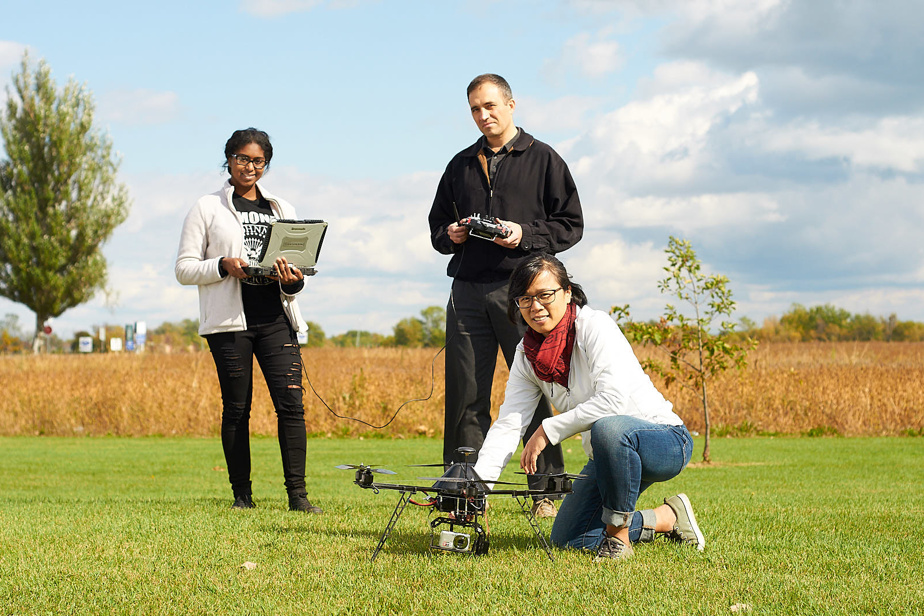The challenges in the agri-food sector are multiplying and becoming more complex. Training programs must evolve accordingly. A look at what’s happening at the two universities that offer programs in agronomy: Laval University and McGill University.
Université Laval has just updated its bachelor’s degree in agronomy, which will be offered in the fall. One of the novelties is that in addition to the concentrations offered – animal sciences, plant sciences or sciences of soil-environment systems – it now includes four themes: world agriculture, digital agriculture, agroecology and agricultural management.
“These are important topics for society and we wanted our students to open up to these realities,” says Lyne Létourneau, vice-dean of studies for the Faculty of Agriculture and Food Sciences. at Laval University.
For example, digital agriculture addresses the whole issue of data, from its collection and synthesis to its analysis and use to optimize yield, in particular thanks to artificial intelligence.
Agroecology is in fact everything related to sustainable agriculture. “We cover practices that aim to reduce the ecological footprint of agriculture, but also, we talk about its impact on the territory, on the food system, on social justice”, explains Lyne Létourneau.
World Agriculture introduces students to the different types of crops that grow on the planet while farm management is about optimization and yield.
McGill University is also evolving its programs with society. “There are now high expectations of producers and they have a role to play in making consumers understand what they are doing, for example in terms of the environment and animal welfare,” explains Pascal Thériault, director of the Agricultural Business Management and Technology program, a college-level program offered at McGill University.
The one who is also vice-president of the Ordre des agronomes du Québec points out that it is the same thing for agronomists, trained at the university level. “They must explain to consumers, for example, why they use pesticides, while remembering that Quebec has one of the most stringent agro-environmental regulations in America,” he says.
There is therefore the whole communication aspect to be developed among the students. “In college, it’s covered in the program and in the baccalaureate, there are courses in professional practice and the internship leads the student to follow an agronomist in the field where he must learn to communicate well, “says Mr. Theriault.
Climate change is also disrupting the daily lives of the various actors in agricultural production.
“The weather is more and more uncertain, so we have to develop cultivars capable of withstanding severe droughts, then intense storms,” explains Pascal Thériault. It is also necessary to maximize the absorption of fertilizers into the soil and minimize runoff into waterways. »
Fortunately, technology comes to help. “There are different tools, like drones, that allow you to do precision farming,” he adds. For example, we will no longer irrigate the whole field, but only the places that need it. The technologies, which evolve very quickly, are shown both in the baccalaureate and in the college program. Of course, not every farmer will start buying drones, but they should be aware of existing technologies to help them meet their challenges. »




